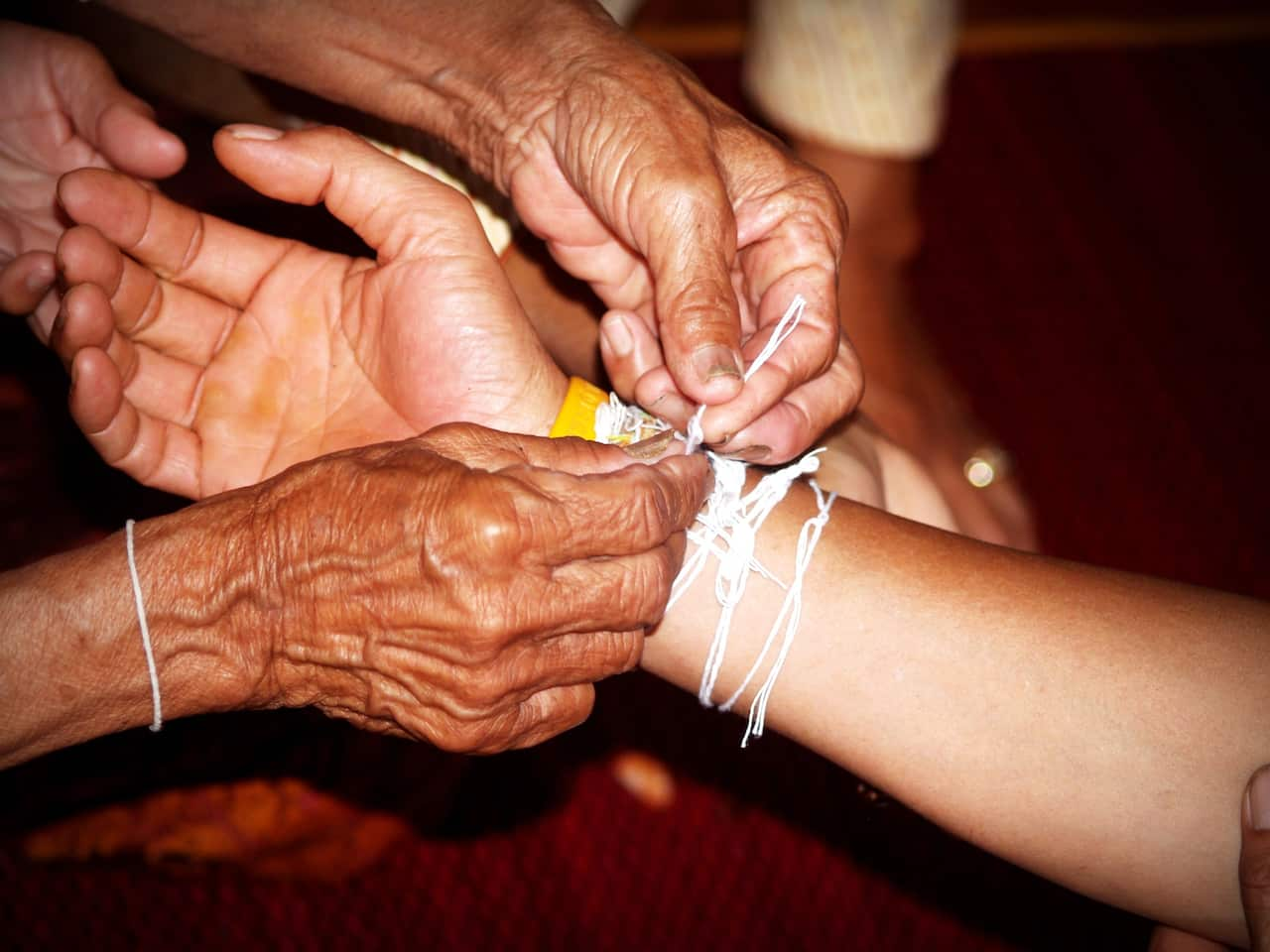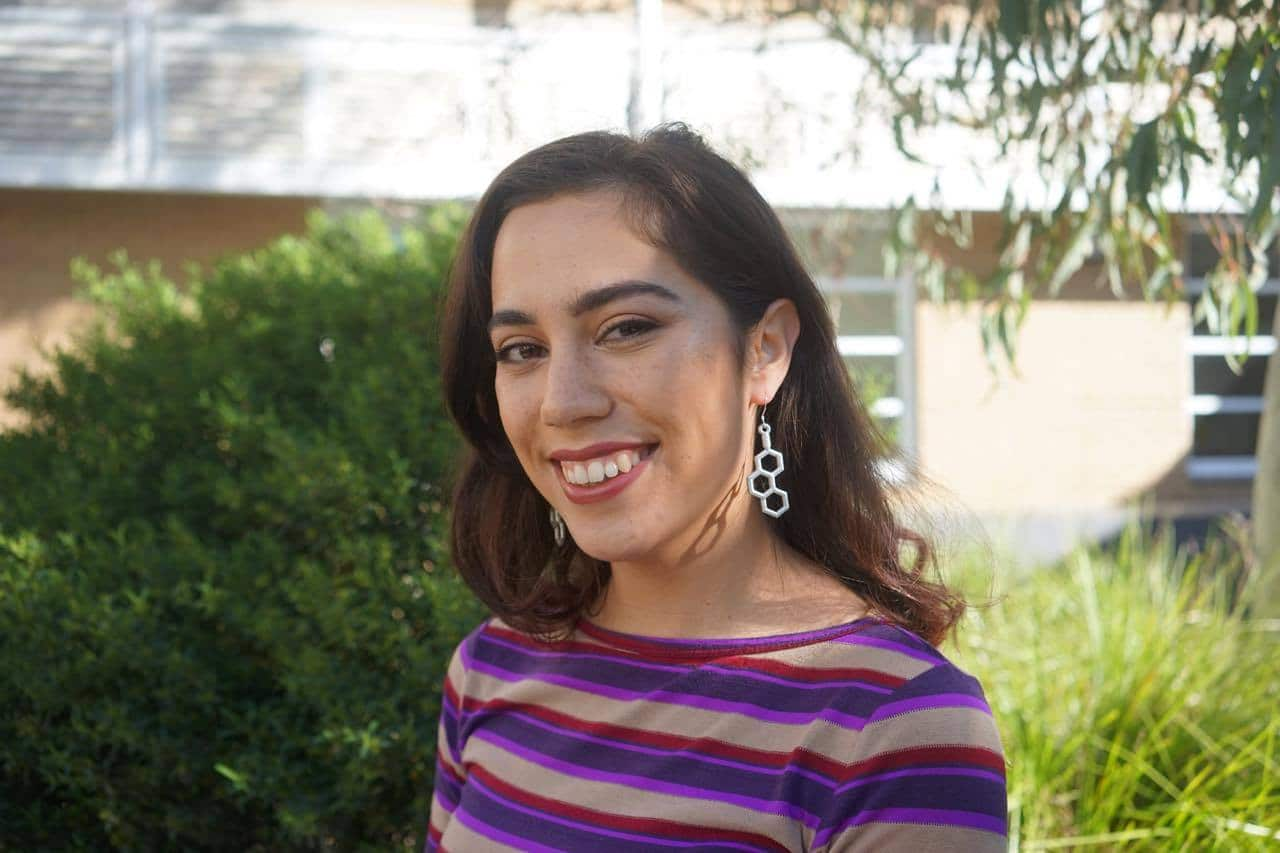Lily’s grandmother hailed from Hanuabada, a small town outside Port Moresby, the capital of Papua New Guinea. She met Lily’s white Australian grandfather there post-WW2, and they married, eventually returning to Australia to raise their family. They agreed that their children would only speak English; assimilation was the cultural fashion at the time, Lily says. “They wanted their children to fit in.”
Her grandmother learned to assimilate too. A quick learner, she picked up English from her children and wide social network.
A few years ago, she was diagnosed with dementia. As the end neared, she started losing her adopted language. English words and phrases slipped through the cracks of memory. Eventually, all she was left with was her original tongue, Motu.
Because no member of her family could speak it, her grandmother ended her days in a bubble of silence, unable to communicate her needs and wants, Lily says with sadness.

“I don’t think mum and her siblings realised the full impact of not speaking the language until that period with my grandma at the end of her life when she not only couldn’t recognise anyone but couldn’t speak English any longer. No one spoke Motu so no one could understand her.”
The experience still haunts Lily, 23, a fourth-year student doing a double degree in Arts majoring in Linguistics and Development Studies at the Australian National University.
For Lily, her grandmother’s poignant end-of-life struggles with communication combined with her own interest in language learning and the Pacific region made choosing to study Tok Pisin an obvious option when it came to bridging her two degrees.
Tok Pisin, literally ‘bird talk’, is one of Papua New Guinea’s three official languages along with English and Hiri Motu. An English-based creole language combining grammatical elements of Indigenous languages and some German, it has more than four million speakers and rose out PNG’s colonial trading history.
ANU is the only Australian university to offer Tok Pisin, which it teaches through four online courses in partnership with Open Universities Australia. It can be studied as part of a degree or as a single subject..
This has been the first year the course has been offered and it’s been a rewarding learning experience for Lily so far.
Overseen by native speaker Jenny Homerang, the course features weekly 90-minute group online lectures where Lily and her fellow students – a mix of undergraduates, postdoctoral students, researchers, academics and public servants with prior background working in PNG – meet to discuss the course material.
The course aims to provide a solid understanding of Tok Pisin grammar and vocabulary as well as a holistic survey of PNG’s culture, geography and people.
“Each week’s lesson is put up online, and there is a song or poem so we are exposed to all kinds of media. Each week, we are assigned a conversation topic which we research and get the whole class to talk about,’’ she says.
“Most of the students in the course are based at the ANU so we sometimes also have meet ups in person.
“I’ve really enjoyed learning it online. One of the hardest things is that there aren’t many language learning resources out there. There is an online dictionary and there are news websites in Tok Pisin but not much else so in classes we really have to rely on the course material and on each other, ask the right questions and be curious enough to really be interested in learning it.”
Lily hopes that learning Tok Pisin will help open pathways for future language or development work in Papua New Guinea - a rich source of academic interest for any budding linguist.
There are more than 800 distinct Indigenous languages belonging to two dramatically different language groups—Austronesian, featuring the local languages classified as Melanesian, and non-Austronesian, or Papuan.
“It is the most heterogenous country in the world, and really quite incredible as there are several different language families.”
So PNG is a kind of ground zero for linguistic aficionados like herself?
She chuckles. “Absolutely. There are plenty of people doing PhDs and Honours research working on documentation of languages. A lot have either not been documented at all or are undocumented, so there are people setting out to write full descriptions of these languages called grammars.”

Lily hopes the join this army of dedicated language preservers.
She is passionate about helping to curate, codify, preserve and ensure the survival of Indigenous languages, wherever they can be found.
It’s a race against time. Australia is the top 'hot spot' for vanishing languages, according to linguists.
Worldwide, one of the world’s 7000 recognised distinct languages gets lost every two weeks as elderly speakers die out.
Language is crucial to preservation of culture and identity, particularly in an increasingly globalised world, she says.
“I think it’s absolutely integral to someone’s identity and knowledge of their culture, even if it’s just a word list of 20 or 60 words. Knowing there’s something out there preserved and archived can be quite powerful, especially for minority groups, and particularly in Australia with our whole history of assimilation.”
She would like to eventually work in remote Indigenous communities in Australia and across the Pacific region helping to create language resources, be it a simple dictionary or more complex documentation.
Her grandmother’s story drives her mission. “It’s one of main the reasons I’m so passionate about language revival, the preservation of language, and having intergenerational communication.
“Not only would it mean something for the individual learning it, but it could have very real communication and health issues if someone is not able to communicate.”
ANU offers 16 Asian and Pacific languages that give students the skills and knowledge to succeed in the Asian Century. Nine of these languages – Burmese, Hindi, Mongolian, Sanskrit, Tetum, Thai, Tibetan, Tok Pisin and Vietnamese – can be studied entirely online via Open Universities Australia. Enrol now to start studying in 2020: open.edu.au/online-courses/australian-national-university

